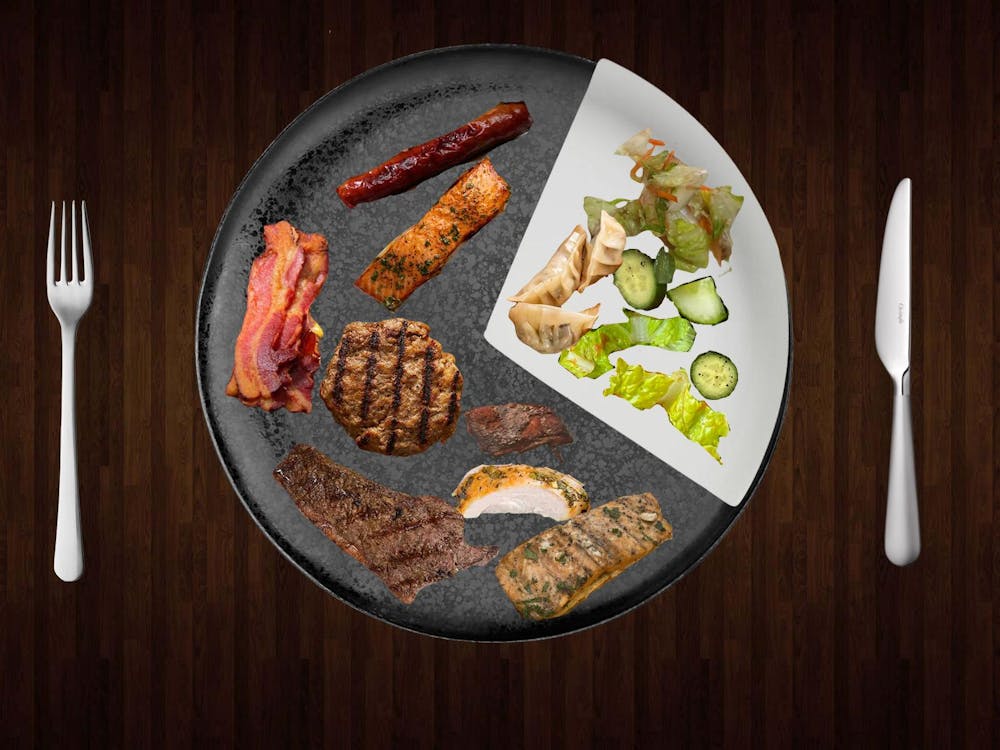A fenced-off enclosure guarded by intricately carved doorways, ornate passage-wood speaking of the sacred. Through the gate one can glimpse discarded shoes at the entry of the marae: their kind are forbidden inside. Panning back, a busy city street, university buildings, the Skytower looming high above, a monument to American phallicism. In the distance, the hint of saltwater, of sails and green volcanic islands in the harbor.
Welcome to Auckland, gateway to New Zealand. It's really more complicated than you think. Perhaps my largest surprise with Aotearoa (omitting difficulties of a personal nature) is how different it is – from what I expected, from the British colonial stereotype which still fits it quite well. Barely below the surface of Anglicized accents, left-sided drivers and generally weird culinary preferences (meat pies, a national obsession with beetroot) lies an uneasy plurality.
From my shared garret-room overlooking the city, I have lived months since February. Classes have only just begun. The "study" feature of Study Abroad is on the ascendant, with its own set of difficulties and mistranslations (email, grading, sexual bondage). In its Byzantine frenzy, this is more foreign (and more familiar) than anything up to this point. I have purposefully chosen the anti-Princeton experience. Perhaps I shall live to tell it.
In the meantime, as wizened explorer of the land, I shall reveal the intangibles that make New Zealand more than an extension of what some Kiwis call "West Island" (that's Oz for those of you with geographical inhibitions. . . Australia). Most striking surely to the Western eye is the relative importance of Maori culture down here. From the All-Black's famed haka (rugby, people – get with it) to dual-language signs, the presence of the Land of the Long White Cloud's first inhabitants is strongly felt, especially in the North Island.
Imagine America if, instead of killing off most Native Americans (and herding off the rest like diseased cattle to be quarantined), we'd only killed a lot at war, appropriated most land and let the rest stay integrated somewhere on the fringes of society. Something akin to the African-American experience without slavery or Middle Passage (which is to say not all that close). Maori pride and customs are taken seriously by most Kiwis, a fairly recent development for which some thank political correctness. In many ways, they crystallize a visitor's impression of New Zealand as a place basking in the currently different. Since the 70s, a revival of Maori culture has led to the resurrection of the language and of maraes (meeting places) and has complicated the political scene. Maori-Pakeha relations are still somewhat uneasy, as befits a nation dealing with a not-so-distant past (1830s).
New Zealand is not just the surprise of discovering a strong parallel culture. Life is more interesting than that. Another defining marker of Kiwi culture's independence is the deeply-ingrained national stance on nuclear issues: basically, nukes suck and we're not afraid to say it, U.S. be damned. (Locals love this particular point. In some version there's a nuclear toaster in every house in Peoria. No wonder they think we're nuts.) This attitude has made N-Zed an official tourist destination for China. Bustling, polycultural, keyed-up (electricity-less) Auckland drives the point home: Kiwis are proud to be both Western (read: latent fealty to Britain) and firmly situated on the Pacific Rim.
This Polynesian feel recedes as one moves South, but Aotearoa still keeps you on your toes. Palm trees in the middle of pastoral scenes, sheep, cows and bungee jumping. Somehow it works down here. Small farming combines and competes with a frenzied love of the outdoors (attention adventure tourists) as the lifeblood of God's Own (as some Kiwis modestly call their home).
And well they should; from surfing beaches to glaciers, New Zealand has everything and then some on a postage stamp. The small dairy farmer is juxtaposed to the hitchhiker and tongue-pierced surfer in a skirt with a proximity that's almost unnerving. All three are likely to have tattoos – (I had thought those were most popular in U.S. prison communities. My mistake) – and get along fairly well, which to these American eyes is a trip. I guess they know to be easygoing: intense natural beauty, not very many people, and 20-plus times more sheep is a winning formula.
Stir rugby and cricket into the mix (superior smirk –I understand them), add a wicked dash of humour, and this is the nation it was released from custody into (If you're nice, I might treat you to a tourist primer sometime). Everything combines to make New Zealand a place all its own, where the stereotypically common and the unexpected live side by side.
Of course, Kiwis partake in the worst of U.S. and U.K. culture as well. Our hegemony has not faltered – McDonald's and 90210 as ambassadors to the world. Princeton basketball (or any basketball for that matter), however, hasn't caught on for some reason, and so I must scour the net for vital life-giving box scores. It's almost enough to make me wish I were Canadian.
A hot summer day nears its close. "Modern China Through Film" beckons. I've got my shades, wife-beater, sarong and backpack. I've managed to avoid eating beets today. Life is good. Right-o.








